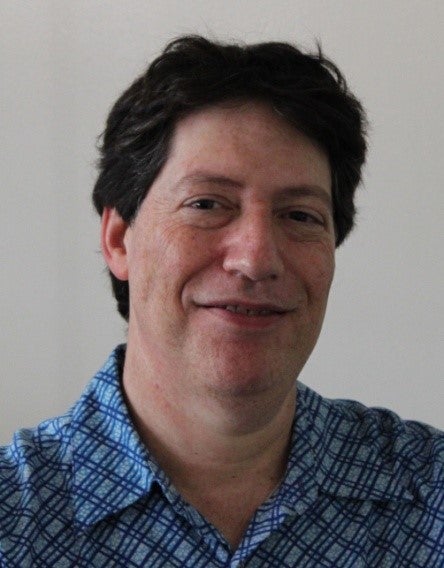
-
Center for Biotechnology and Interdisciplinary Science, 1623 15th St, Troy, NY 12180
- grossr@rpi.edu
-
518-276-3734
About
Professor Gross received his Ph.D. from 'Brooklyn Poly' (Polytechnic University) working on Polymer Stereochemistry (synthetic chemistry) and then performed postdoctoral research with Robert Lenz at UMASS Amherst on the synthesis/properties of polyhydroxyalkanoates (i.e. bacterial polyesters).
His laboratory is addressing the grand challenge of transitioning from petroleum to readily renewable (e.g. plant derived) chemicals/polymers via processes that are ‘environmentally friendly’ or green. The solutions he seeks to develop aim at mitigating global warming, pollution of our planet and improving human health. Our approach is to combine green chemical methods with natural catalysts (e.g. enzymes and whole cells) that work under mild conditions without using or generating toxic chemicals. We have focused these efforts on the synthesis and study of surfactants, peptides, polymers, materials (e.g. biobased building materials), biobased fibers from cellulose, chitosan, hydrogels and bioresorbable polymers for medical applications (tissue engineering, wound healing). In addition, our group has developed close collaborations with biologists, biophysicists, biomedical engineers, and clinicians to develop biocompatible/bioresorbable polymer therapeutics and hydrogels based on bacterial cellulose, bioresorbable polymers based on poly(glycerol sebacate) analogs and water soluble natural polymers. Drug development is focused on usurping the high microbial production of glycolipid and lipopeptide surfactants. These molecules serve as backbones to assess structure-cytotoxicity relationships on cancer and normal cell lines. They are also of great interest in cosmetic applications such as biobased skin care ingredients (e.g. anti-dandruff, anti-wrinkle), environmental cleaning (e.g. oil spills), biopesticides and much more. Bacterial cellulose provides a route to cell grown nanomatrices for a wide range of advanced materials as well as a non-plant source of glucose. Methods are being developed for its manufacturing on site to create personalized patient solutions. Our group is also working on the upcycling of waste legacy plastics such as polyethylene terephthalate and polyethylene using unique chemoenzymatic methods.
Examples of ongoing research are as follows. There is a need to develop efficient and scalable methods to synthesize peptides. These building blocks hold great promise for creating antimicrobial, metal binding, self-assembling, adhesives (to replace sutures) and environmentally responsive materials. However, peptide synthesis currently relies on solid and liquid phase methods (SPPS and LPPS) that are expensive and, consequently, prohibit the use of peptides in these and other exciting fields of application. Our laboratory is pioneering methods that use protease-catalyst to build peptides in aqueous media without the need for protection-deprotection steps.
In other work, we are using the selectivity of lipase catalysts to synthesize functional biodegradable polyesters that meet important needs for tissue engineering matrices, drug delivery systems and bioactive materials.
Another focus area is the use of bacteria that directly extrude cellulose nanofibers from cell membranes that become intertwined creating interconnected nano fibrous 3-D matrices. One aim in this program is to control matrix parameters including fiber size and porosity to tailor bacterial cellulose for applications as membranes for separation/water purification, personalized skin patches for wound healing, tissue engineering matrices and electronic devices.
Also, Gross is developing next-generation bioactive compounds (e.g. anticancer, antimicrobial, immunomodulators). This work makes use of a family of surface active microbial synthesized glycolipids that can be molecularly engineered to enhance their physical and biological properties.
In addition, the Gross group is developing solutions to the problem of plastic pollution. It is now evident that separating plastic wastes and physical recycling of recovered plastics has largely failed to create effective pathways for plastic re-use. Work thus far has focused on a family of enzymes known as cutinases that degrade plastic water bottles made from PET to their constituent building blocks (terephthalic acid and ethylene glycol).
Our ability to engage in this large array of project areas is possible due to our belief that the best work is done through productive collaborations with scientists and engineers that bring new perspectives and expertise.
Gross has over 400 publications in peer-reviewed journals that have been cited 32,000 times (h-index 94, i10-index 332). He has graduated over 40 Ph.D. students who are enjoying successful careers in industry and academics. In addition, he believes in the formula of having Ph.D. students active in mentoring as well as working in teams with undergraduates.
Ph.D. Polytechnic University (Major: Chemistry). Multistep synthesis and studies of chiral helical rigid-rod polymers.
Postdoctoral Research (University of Massachusetts Amherst). Flexibility in the synthetic pathway to microbial polyesters.
Research
Polymer Chemistry
Bio-based building blocks
Biocatalysis
Sustainability
Green Chemistry
Biosurfactants
Advance materials for electro-optical applications
Energy Storage (battery seperator membranes, dielectric materials)
Polymer therapeutics
Biochemistry and Chemical Biology
Biotechnology and Biomaterials
Organic, Medicinal and Drug Discovery
Polymers, Materials and Energy
Green Chemistry and Sustainability
Recognition
- NSF: Presidential Young Investigator Award (1990-1995)
- William H. Rauscher Lectureship (2000)
- NSF-EPA: Presidential Award in Green Chemistry (2003)
- Sesquicentennial Medal Winner (2005): Awarded to outstanding Polytechnic University Alumni
- Turner Alfrey Visiting Professorship (2010)
- Johnson and Johnson: Focused Giving Award (2000-2002)
- First Honoree, (Pittsburgh State University, September 26, 2014) 2015 Polymer Fellow Awardee
- 2017 Lifetime Achievement Award from the BioEnvironmentalPolymer Society
- 2019 ACS Award for Affordable Green Chemistry
- 2019 Founder/Chair (2019), Inaugural Gordon Research conference: Biomass to Biobased Chemicals and Materials
- January 2023 Appointed Editor in Chief: Journal of Industrial Biotechnology (JIB)
Publications
The following is a selection of recent publications in Scopus. Richard Gross has 432 indexed publications in the subjects of Materials Science, Materials Science, Chemistry.